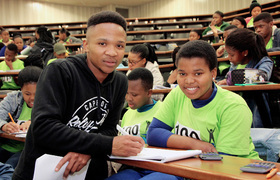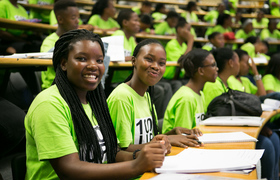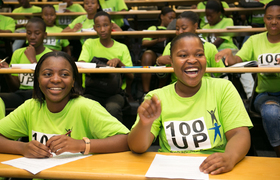Mini Summer School primes future students
28 September 2018 | Story Helen Swingler. Photos Je’nine May. Read time 6 min.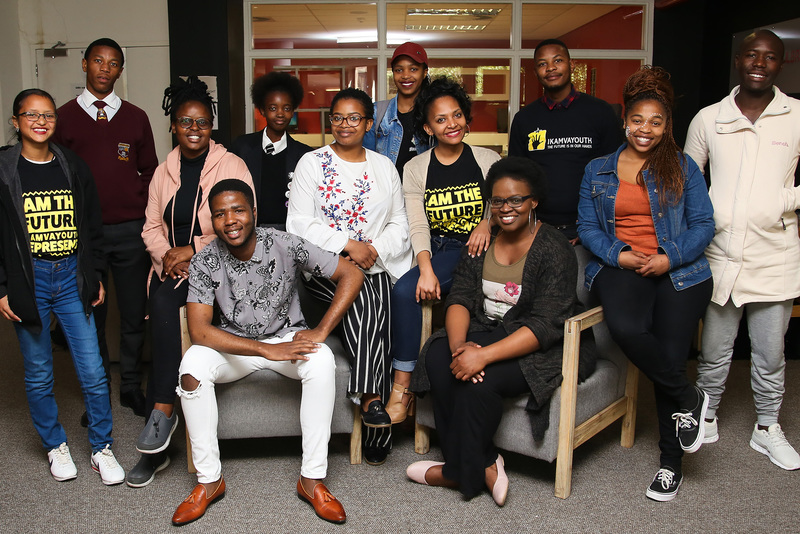
There was loud applause from Kramer Lecture Theatre 2 last Saturday morning. Inside, Devin Finaughty and Chandra Thurgood were introducing the grade 11s of the IkamvaYouth Programme to the wonders of forensic science. And yes, there was crime scene investigation involved, just like in the movies.
It’s not often you’ll find learners “in school” over a long weekend, but this is learning of a different kind. Mini versions of UCT’s evergreen Summer School are introducing grade 11 and 12s to a menu of new subjects – and possible study and career choices.
Mini Summer Schools are community engagement and social responsiveness initiatives, an offshoot of the Centre for Extramural Studies’ (EMS) Summer School, said EMS director Medee Rall.
Over the Heritage Day weekend, scores of pupils from IkamvaYouth programmes across the Western Cape visited the campus to explore archaeology, zoology, forensics and micro-organisms such as gastrointestinal bacteria.
The IkamvaYouth Programmes offer after-school tutoring, psychosocial support and career guidance to over 5 000 learners in school hubs across the Western Cape. Volunteer tutors support learners; most are university or college students, and many are IkamvaYouth alumni. The programme ensures learners are placed in a post-school opportunity and many go on to tertiary studies.
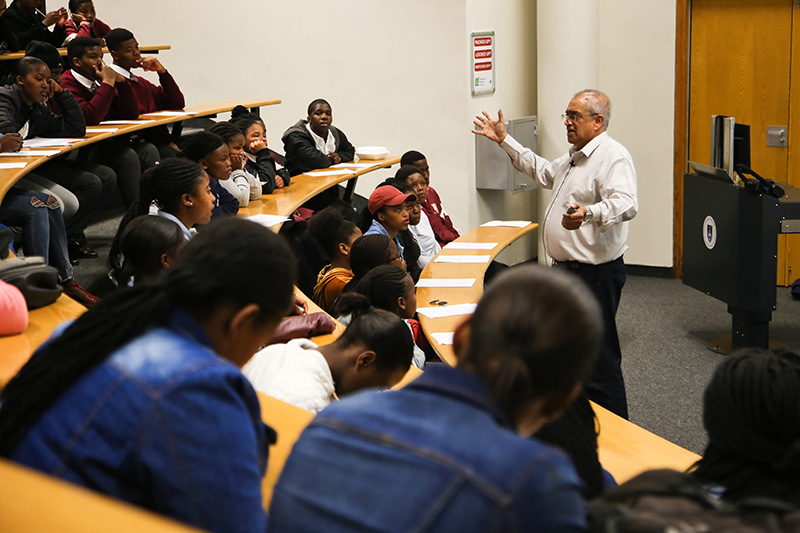
Win-win
It’s a win-win situation, said Rall. The outreach takes selected Summer School lectures and opens them to new, young audiences, bringing grade 11 and 12s on to campus to give them a feel of lectures and new study and career options.
It’s also an important first step onto campus, and part of the EMS transformation initiatives. The aim is to establish an early relationship with learners and introduce the possibility of recruiting them as future students and graduates.
Sinethemba Jaca, a volunteer tutor at the IkamvaYouth’s Nyanga branch, is an example of this. Jaca, an Ikamva alumnus, is now a UCT student planning to graduate this year.
He has welcomed the mini Summer School initiative and is keen to have IkamvaYouth learners enrol for more Summer School courses.
“The nature of these lectures will definitely change one or two career stereotypes.”
“The nature of these lectures will definitely change one or two career stereotypes,” he wrote.
Asiphumeze Stuurman, of ID Mkhize High, is keen to study languages and art as a passage to an acting career – but was fascinated by the forensics lecture.
Busisiwe Mahlombe, of Chris Hani High in Khayelitsha, is intent on studying civil engineering but gave the thumbs-up to the lecture on Africa’s dinosaurs. She also attended UCT’s Open Day.
“Whenever I hear there’s something on at UCT, I am always here.” She hopes to be the first in her family to study at university.
“Whenever I hear there’s something on at UCT, I am always here.”
Carlynne Davids, of Robinvale High in Atlantis, is doing mainly commerce subjects at school but is working towards getting a bursary to study financial and business management at UCT.
“I’ve always been passionate about figures,” she said. But she too was fascinated by the forensics lecture.
“I also love investigating things.”
Thando Mbuke, of Siphamandla Senior Secondary School in Khayelitsha, hopes to become a pharmacist. This was his first visit to a university.
The mini Summer School has prompted many questions: What caused the extinction of dinosaurs? But he was also interested to learn more about forensic pathology services.
Learning is fun
Recently, retired Professor Anwar Mall delivered the mini lecture on bacteria in the gut. Mall has delivered many courses at Summer School, but these young learners are different.
“The main value of mini Summer School programmes lies in opening students’ eyes to the value of [a] higher-education career as a very worthwhile goal,” he said.
Much of his career at UCT was spent in student support activities (and as a warden of various UCT residences), teaching additional tutorials in medical biochemistry to first-year medical students.
“Realising that many students were disadvantaged by poor schooling, a few of us academics at UCT embarked, many years ago, on an initiative to have tutorials for matric students from township schools at UCT on a Saturday morning.”
This has been yielding rich dividends as many of these learners have enrolled at UCT.
For Mall, the mini Summer Schools are also an opportunity to show that “learning is fun, that it is not only about textbooks, swotting and learning by rote and examinations”.
“We’re spending a lot of time and energy on transforming our universities. However, not enough is being done to fix our schooling system. Ikamva, the 100UP programme and other initiatives are to be applauded for the fine work they’re doing, and hopefully their support [will] increase in the coming years so that these programmes can cover more schools.”
 This work is licensed under a Creative Commons Attribution-NoDerivatives 4.0 International License.
This work is licensed under a Creative Commons Attribution-NoDerivatives 4.0 International License.
Please view the republishing articles page for more information.







